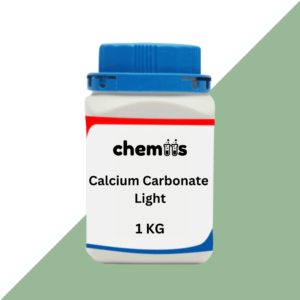n-Propanol, also known as 1-propanol, is a colorless, flammable alcohol with a characteristic odor. It is widely used as a solvent, intermediate in chemical synthesis, and as a cleaning agent in various industrial, laboratory, and commercial applications. n-Propanol has a wide range of uses due to its ability to dissolve both polar and non-polar substances. It is commonly employed in the manufacture of pharmaceuticals, personal care products, and in chemical reactions.
Applications
- Industrial Solvent
- Paints and Coatings:
n-Propanol is used as a solvent in the formulation of paints, coatings, varnishes, and inks due to its ability to dissolve resins and pigments. - Cleaning Agent:
It is an effective solvent for cleaning electronics, precision instruments, and removing grease or oils in industrial applications.
- Paints and Coatings:
- Pharmaceutical Industry
- Solvent in Drug Formulations:
n-Propanol serves as a solvent and carrier for active pharmaceutical ingredients in the manufacturing of oral and topical medications. - Extracting Agent:
Used in the extraction of certain compounds, particularly in the production of botanical medicines and herbal extracts.
- Solvent in Drug Formulations:
- Cosmetic and Personal Care Products
- Astringent and Skin Care Products:
n-Propanol is used in various skin care products and astringents due to its antiseptic properties and ability to dissolve other substances. - Perfumes and Fragrances:
It is included as a solvent in the formulation of perfumes and aftershaves.
- Astringent and Skin Care Products:
- Chemical Synthesis
- Intermediate in Chemical Reactions:
n-Propanol is a key intermediate in the production of propyl esters, propylene glycol, and other chemicals used in plastics and industrial applications. - In the Manufacture of Acetone and Isopropanol:
It is used in the production of acetone and isopropanol through chemical processes.
- Intermediate in Chemical Reactions:
- Food Industry
- Flavoring Agent:
n-Propanol is used in flavoring extracts, contributing to the flavor profile of certain foods and beverages, though in trace amounts. - Food Additive (in Controlled Quantities):
When used as a flavoring agent or in food processing, it must meet food-grade standards.
- Flavoring Agent:
- Laboratory Applications
- Solvent in Analytical Chemistry:
n-Propanol is employed in laboratories for various solvent-based extractions and chromatographic techniques. - Biological Studies:
It is used for preserving biological specimens and in the preparation of tissue samples for microscopy.
- Solvent in Analytical Chemistry:
- Fuel and Energy
- Fuel Additive:
n-Propanol is used as a fuel or additive in gasoline to improve combustion properties and reduce engine knocking.
- Fuel Additive:
Safety and Handling
- Hazards:
- Flammable: n-Propanol is highly flammable and can pose a fire risk.
- Health Risks: Prolonged exposure or ingestion may lead to respiratory or gastrointestinal issues.
- Skin and Eye Irritation: Can cause irritation or burns upon contact with skin and eyes.
- Precautions:
- Personal Protective Equipment (PPE): Wear appropriate protective gloves, goggles, and flame-resistant clothing when handling n-Propanol.
- Ventilation: Ensure proper ventilation when using n-Propanol in closed spaces to avoid inhaling vapors.
- Fire Safety: Keep away from open flames, sparks, and other ignition sources. Store in a cool, dry, well-ventilated area away from heat or flame.
- First Aid:
- Eye Contact: Flush eyes immediately with water for 15 minutes and seek medical attention if irritation persists.
- Skin Contact: Wash skin thoroughly with soap and water. If irritation or redness occurs, consult a doctor.
- Inhalation: Move to fresh air immediately. If symptoms such as dizziness or difficulty breathing occur, seek medical attention.
- Ingestion: Rinse mouth with water. Do not induce vomiting unless instructed by a medical professional. Seek immediate medical help.








Reviews
There are no reviews yet.